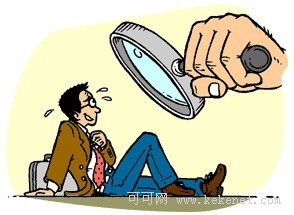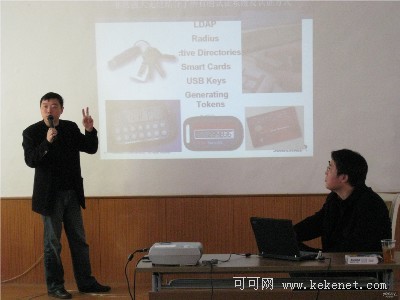
Of course, candor is always best, but there's such a thing as volunteering too much information, as these interviewees proved:
坦白自然是最好的,但口無遮攔卻不見得是好事。比如下面的這些求職者:
• "An individual applied for a customer service job and, when asked what he might not like about the work, he replied, 'Dealing with people.'"
“有一個人申請了客戶服務的職位,但當被問到他最不喜歡這份工作的哪一點時,他的回答是:‘跟人打交道。’”
• "One individual said we had nice benefits, which was good because he was going to have to take a lot of leave over the next year."
“有個人說我們的福利很棒,他很喜歡,因為他明年要經常請假。”
• "One prospect gave me a list of all the reasons why he shouldn't be hired."
“有一位求職者給了我一張清單,上面竟然是為什么不能錄用他的理由”
• "The candidate said she would really prefer a job offer from our main competitor."
“求職者說,她實際上更希望能得到我們的主要競爭對手提供的工作機會。”
• "After being complimented on his choice of college and the high GPA he earned there, the candidate replied, 'I'm glad that got your attention. I didn't really go there.'"
“面試官恭維了求職者所上的大學和他在那里取得的優異成績,但求職者的回答卻是:‘我很高興您注意到了這一點。實際上,我根本沒去那兒上學。’”
• "When asked by the hiring manager why she was leaving her current job, the applicant said, 'My boss is a jerk. All managers are jerks.'"
“招聘經理問求職者為什么離開她當前的工作時,她說:‘因為我老板是個混蛋。所有經理都是混蛋。’”
That last one raises an important point, says Brett Good, a senior district president for Robert Half who frequently coaches job seekers on how to shine in interviews: "Even a mildly sarcastic quip about a current or former employer can raise a red flag so, when in doubt, take the high road."
羅伯特哈夫公司的高級區域總裁布雷特•古德表示,最后一條非常值得注意。布雷特•古德長期培訓求職者如何在面試中突出自己:“即便是對當前或之前雇主最溫和的諷刺,也會讓面試亮起紅燈,所以拿不準的話,還是公允地進行評價為妙。”


















